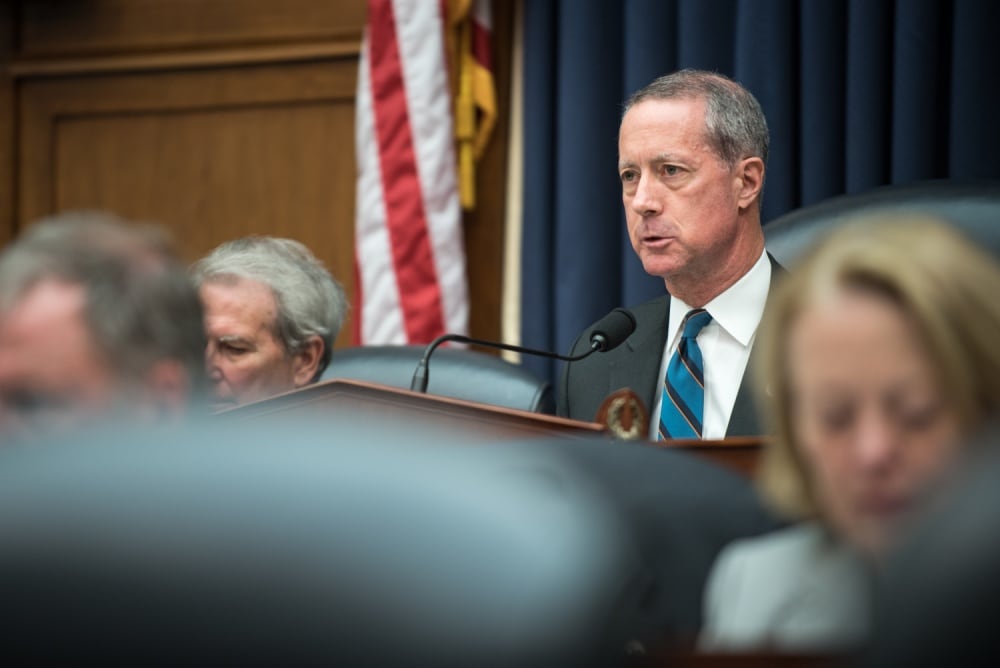MUNICH — If anyone had any doubt left, a panel discussion today at the Munich Security Conference showcased with brutal clarity that the United States and Russia have very little common ground for a rapprochement on nuclear weapons — or much else, for that matter.
Seated on a podium here at the stately Bayerischer Hof hotel, John Sullivan, the U.S. deputy secretary of state, found himself treading familiar waters with Sergey Kislyak, the former Russian ambassador in Washington and now first deputy chairman of the committee on foreign affairs in the parliament’s upper chamber.
At issue were the morbid intricacies of the circumstances under which each country would unleash atomic arms on the other. Specifically, exactly how close to the brink of destruction by way of a conventional attack must one country be before it would shoot back with nukes.
Sullivan and Kisliyak accused one another of following a doctrine of “escalate to de-escalate,” which means something like placing a nuclear punch just tiny enough to make a full-blown atomic war seem disproportionate in response, but powerful enough to end whatever skirmish is in progress.
So Strangelovian was the conversation at times that the speaker immediately following, 2017 Nobel Peace Prize laureate Beatrice Fihn, executive director of the International Campaign to Abolish Nuclear Weapons, joked that she needed a drink when entering the stage.
The Trump administration’s Nuclear Posture Review, a new policy document on the nation’s atomic-weapons strategy and nonproliferation plans, was the object Kislyak’s ire and that of the representative from China, Fu Ying, chairwoman of the committee on foreign affairs of the National People’s Congress, who joined at times in attacking Sullivan.
RELATED

The accusations and denials included: Violations of the Intermediate-range Nuclear Forces Treaty by way of the Russian SSC-8 cruise missile or the American MK-41 shipborne vertical launch system and Aegis Ashore launcher; general petulance when it comes to re-engaging on disarmament; the development of tactical nuclear weapons that would lower the threshold for employing atomic arms; China’s secrecy surrounding its substantial military build-up; Russia’s meddling, now proven in the eyes of American law enforcement, in the 2016 presidential election.
There were others, but none were new.
It was the Olympic spirit that brought a hair of hope into the afternoon, as South Korea and North Korea had made efforts to appear in a show of unity at the ongoing winter games in Pyeongchang.
Perhaps that bit of goodwill could pave the way for renewed talks between the United States and North Korea over the peninsula’s denuclearization, Fu suggested. Because sanctions alone, she argued, cannot replace an actual conversation about making dictator Kim Jong Un change his ways.
That door opened ever so slightly earlier this week, as Vice President Mike Pence reportedly telegraphed some interest for a limited engagement.
There might also be movement on another front: Sullivan, who repeated the Trump administration’s assertion that an international deal to curb Iran’s nuclear aspirations is “flawed,” said the United States and European negotiating partners had recently made some headway in crafting additional language aimed at stopping Tehran’s ballistic missile program.
Following the discussion, Sullivan and Kislyak were the last of the panelists to shake hands. They chatted for a few brief moments, then hurried out of the spotlight on different sides of the stage.
Sebastian Sprenger is associate editor for Europe at Defense News, reporting on the state of the defense market in the region, and on U.S.-Europe cooperation and multi-national investments in defense and global security. Previously he served as managing editor for Defense News. He is based in Cologne, Germany.






